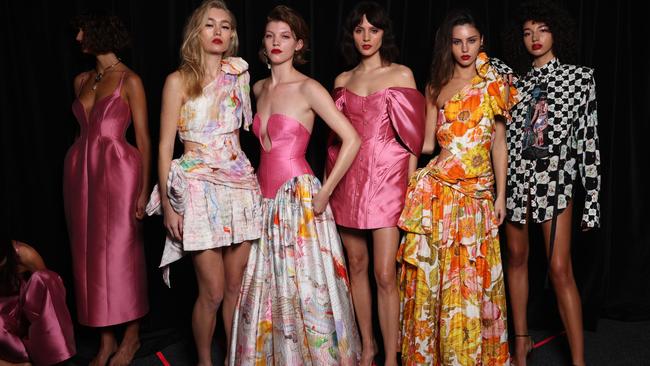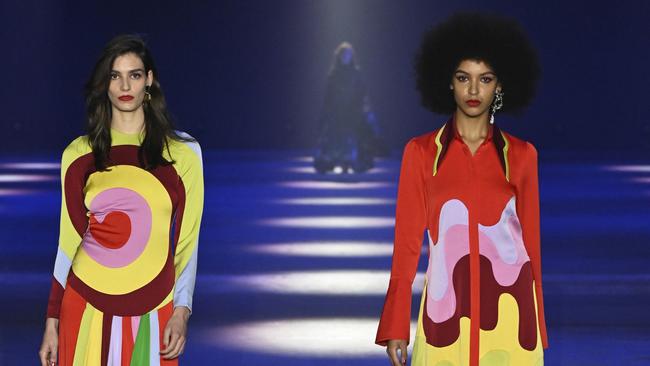The ‘digital passport’ giving designers a clip of $3.5bn rental market
Australia’s top peer-to-peer fashion rental start up is giving fashion brands the chance to profit from designs long after their initial sale.

The co-founder of Australia’s fastest growing fashion start-up says designers should receive royalties from the re-sale of their wares.
Bernadette Olivier, co-founder of peer-to-peer dress rental site The Volte – believes that just like musicians and artists, designers should benefit if their item is on-sold or loaned.
“I come from a family of musicians – my uncle is the lead singer of the Hoodoo Gurus, Dave Faulkner, and I never understood why musicians are paid a royalty, and artists when they sell art … it’s so difficult for designers to tap into resale and particularly rental because it’s a totally different business model,” she said.
The dress rental market is now worth about $3.5 billion globally, with peer-to-peer lending one of its fastest growing categories. The Volte’s most profitable lenders, many who work full time corporate jobs, are earning between $50,000-$100,000 each year from renting out their wardrobes.
This week Olivier’s company – dubbed fashion’s answer to Airbnb – closed a $4 million series A capital raise with eBay Ventures and announced it would pay participating designers a royalty each time a dress was rented out on the site via a ‘digital passport’.
So far KITX, Alemais and Rebecca Vallance have signed on to the company’s royalty model, enabling customers to opt-in to rent their purchases via a plug-in on their websites. The company is in discussion with another 30 Australian fashion labels keen to adopt the new technology.

Olivier says the initiative is not only environmentally sustainable but enables designers to profit from each item long after its initial sale.
“What’s great about that is we get high quality inventory, it’s authenticated, because it’s traced back to the original purchase and then the consumer doesn’t have to find a photo – it’s all saved into that Volte wardrobe,” she explains.
Despite concerns rentals are cannibalising the fashion industry, Olivier said many designers are now realising the model as an opportunity to introduce their wares to future customers.
“For Millennials and Gen Z, the first time they’re going to experience these designers is likely through rental because they just don’t have the pay packet,” Olivier says. “Designers don’t want to age out their customers so this is a great way of then connecting with those second, third and fourth consumers.”

